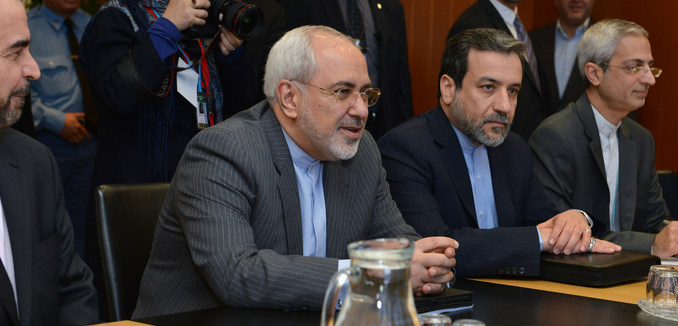The 2015 nuclear deal between world powers and Iran has to be renegotiated because the accord allows Tehran to develop missiles that can deliver nuclear weapons and evade timely inspections, and eventually “to resume its race toward a nuclear bomb,” two former prime ministers of American-allied countries wrote Monday in an op-ed published in The Wall Street Journal.
“Rather than preventing Iran’s nuclear ambitions,” José María Aznar, former prime minister of Spain, and Stephen Harper, former prime minister of Canada argued in their column, “the 2015 agreement gave the regime a road map to achieving them. More generally, since the deal was agreed to, rather than leading to stability, “Iran’s aggression and hostility have increased.” They also credit President Trump with understanding “instinctively how poorly the Iran deal is playing out.”
Given Iran’s ambition for regional control, Aznar and Harper argue that the priority is to ensure that Iran does not develop a nuclear weapon. They encourage an effort, led by the United States to increase pressure on Iran to renegotiate the deal and fix its flaws.
But more needs to be done too. “The U.S. and its allies must also roll back Iran’s aggression and influence throughout the Middle East,” Aznar and Harper wrote, referring to Iran’s use of proxies in Lebanon, Syria and Yemen to spread terror and advance its goals.
The former prime ministers call on the U.S. to mobilize allies in the Middle East including the Kurds, Sunni Arabs who are threatened by Iran, and Shiite groups that have not been co-opted by Iran, to counter Iran’s aggression.
Israel, they wrote, remains “the greatest bulwark” against Iranian aggression, observing that the recent infiltration of an Iranian drone into Israeli airspace marked the first time the two nations have clashed directly. Iranian operatives are moving “ever closer to Israel’s northern border,” constituting a growing threat to Israeli security. Trump also understands, they wrote, “that the U.S. and its allies have a broad interest in standing firmly behind Israel.”
Aznar and Harper reject “half-hearted diplomatic fixes” to the Iranian threat and they note, “If left unchecked, Iran’s aggression will ultimately threaten Europe and North America as well. All should urgently work together to counter this threat to global security.”
[Photo: IAEA Imagebank / Flickr ]




